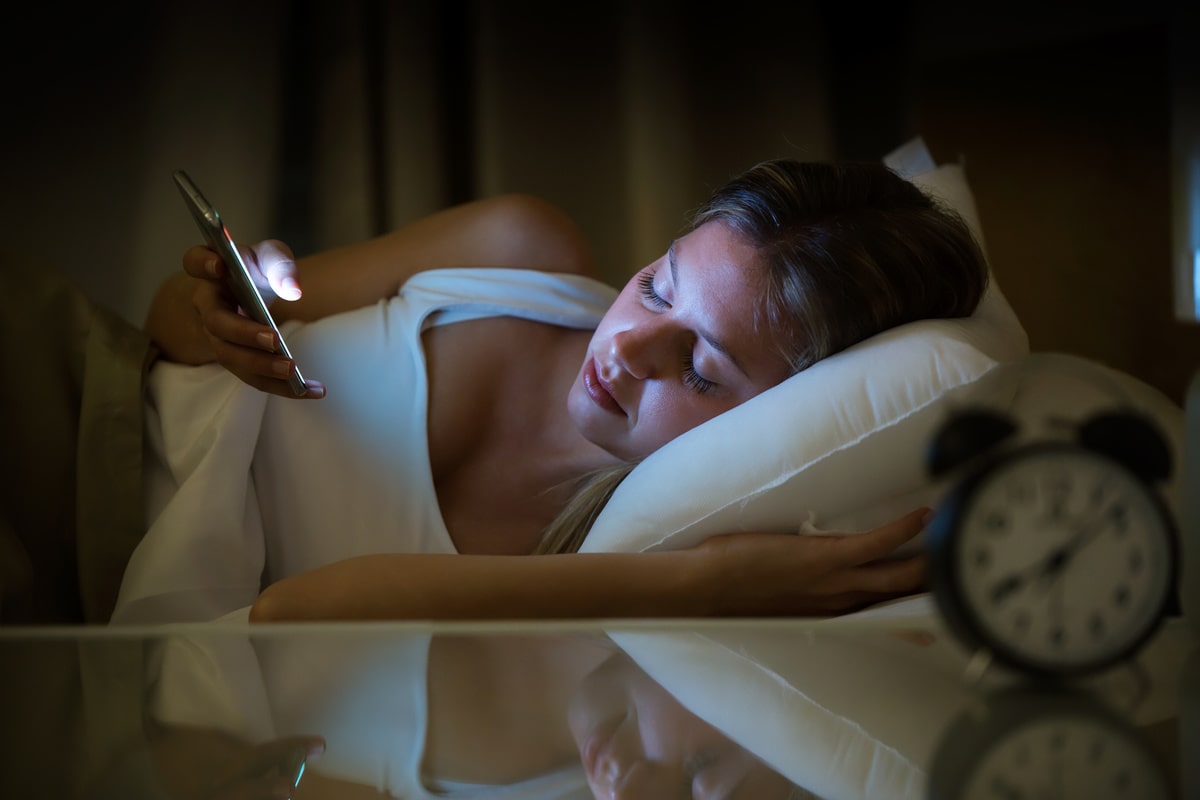-
- CBD for Pets
- Why take CBD to sleep better ?
- Which CBD for stress and anxiety ?
- Buy CBD for high and low blood pressure
- Buy CBD for pain relief
- Buy CBD for your addictions
- Buy CBD for the skin
- Buy CBD beauty products
- Buy CBD Wellness
- Buy CBD for focus and motivation
Product successfully added to your shopping cartQuantityTotalThere are 0 items in your cart. There is 1 item in your cart.Total productsTotal shipping To be determinedTotalContinue shopping Proceed to checkoutMy account-30% Off In Your Shopping Cart And 24H Delivery
Is CBD effective against insomnia ?
Anxiety, stress, too much coffee, too much noise, bad bedding..., the causes of insomnia are quite numerous. This sleep problem can happen to anyone, but there are solutions to treat it. The only problem is that most of these treatments have side effects and that's where CBD comes in.
As a compound natural to cannabis, CBD is a good anti-insomniac. When you consume it, it interacts with your body to directly address the cause of insomnia, so you can quickly get back to sleep.
One of the special things about CBD is that it can be used in combination with another natural product for even more amazing results.
But, before you jump into the purchase of this compound, it would be good to identify how it works on sleep as well as the ideal dosage of CBD to get a satisfactory result. Find all the details in the rest of this article.
The effects of CBD on sleep
CBD is short for "?cannabidiol?". It is a compound in cannabis, but it is not an addictive substance like THC (Tetrahydrocannabinol).
A study by the World Health Organization (WHO) even found that CBD is more effective than THC in treating sleep disorders.
In fact, it is a natural compound that helps relax a person's muscles to help them fall asleep.
To do this, CBD interacts with the individual's body to relieve or inhibit all elements that can negatively impact sleep such as stress, extreme tension states, pain or even psychological disorders.
The interaction of CBD with the human body is through the "endocannabinoid" system. When an individual consumes CBD, the cannabidiol molecules interact with receptors throughout their body to help the body relax.
This action results in the regulation of breathing, heart rate as well as body temperature. The person concerned is then in a state of drowsiness, which leads to light sleep.
In addition, cannabidiol is known for its anti-oxidant, anti-psychotic, anti-inflammatory, anti-depressant and also analgesic properties.
In case you suffer from insomnia due to any chronic pain, CBD is the ideal solution.
Just apply it as an ointment or oil to the sore part of your body and the relief is almost immediate.
You can also use it to stop a headache or runny nose that is keeping you awake. In addition to helping you get a soothing sleep, CBD also helps to extend the duration of the deep sleep phase.
It soothes the psyche by ensuring optimal serenity and tranquility to sleep well. It should be noted, however, that CBD does not induce sleep, but rather promotes sleep while improving its quality.
-min.jpeg)
CBD + melatonin: cocktail for better sleep
Melatonin? is a hormone secreted by the pineal gland which is located in the centre of the brain. The role of this hormone is the regulation of the circadian cycle by alternating day and night.
When you are in a dark environment or when it is dark, the gland is activated and it releases melatonin in very high quantities.
This will then cause the individual to feel tired, which will lead to sleep. However, if it is night and you are in a lighted area, to the brain, it is daytime.
Insomnia is sometimes caused by a malfunction of the pineal gland. This deficit can be caused by prolonged exposure to light from smartphones or television.
In this particular case, synthetic melatonin is used to induce sleep more quickly.
When you combine melatonin with CBD, you get the perfect combination to make your sleep more peaceful and enjoyable: CBD relieves the causes of your insomnia and melatonin speeds up the onset of sleep.
The two compounds are complementary and work synergistically to relax the entire body and ensure a soothing, restful sleep.
There are several products on the market that offer these two substances in combination. However, the dosage of each substance can vary from one product to another and this can have an impact on the final result.
This is why you should take the time to ensure that the product you choose meets your requirements. Furthermore, before resorting to this solution, it is strongly advised to seek medical advice first.
What dosage for sleeping?
CBD is a natural compound with beneficial properties on sleep. However, to get a satisfactory result, you need to take the right dosage for you.
To this end, several factors should be taken into account to determine the ideal dosage. For this, you need to monitor your weight, metabolism, sensitivity as well as your reaction to CBD.
The dosage will also depend on the problem you want to solve. And if you were already taking other substances or products to combat insomnia, you'll want to make sure that adding CBD won't cause you any problems.
Generally speaking, there are three dosage categories for CBD: micro-dose, standard dose, and therapeutic dose. Ideally, you should start with a small dose and gradually increase until you determine the dose you need.
But before you embark on CBD therapy, it is advisable to refer to a doctor. For sleep problems, the micro-dose is most often recommended. It consists of a daily intake of 0.5 to 20 mg of CBD.
This dose is more than enough to relieve stress, metabolic disorders, mood swings and headaches. As for use, the most common way is to apply CBD oil under the tongue.
To do this, simply place drops of the oil under the tongue and then swallow it after a few minutes. The amount of drops varies depending on the concentration of the oil.
However, if with higher and higher doses you still do not get satisfaction, it is best to start by decreasing the dosage.
In fact, many people have been able to determine their dosage by making gradual increases followed by equally gradual decreases.
Note that CBD is also available as a cream (for skin applications), as a liquid spray and in capsules.
CBD can help with sleep apnea?
For people who suffer from sleep apnea, CBD appears to be a beneficial alternative. Since this compound also acts on breathing, then it can help you to alleviate the symptoms and even the effects of sleep apnea. It is especially recommended for patients who have tried many curative methods without getting any conclusive results.
Does CBD still allow for dreams?
The soothing and relaxing properties of CBD are now unproven. It improves the quality of sleep, but does not influence whether you have dreams or not.
All the information on our website is intended to help you understand our products. It does not constitute medical advice and is certainly not a substitute for specialist medical advice. We recommend that you seek the advice of a specialist before consuming any cbd product.Discretion & SpeedLoyalty RewardResponsive Customer ServicePREMIUM QUALITYNewsletterClick here to subscribe to our newsletter!
NewsletterThe best offers, good advice?
Sign up now!100% secure payment© 2025 - Magna CBD
Footer Block

